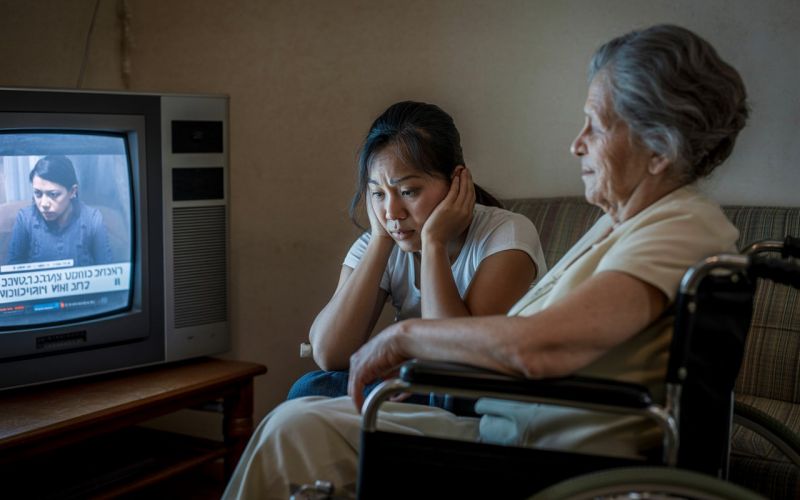Trauma Doesn’t Take a Day Off: Emotional Health Tips for Caregivers
iSavta | 20.06.2025

Being a caregiver is not an easy job. You work hard every day, taking care of your patient—feeding them, giving them medicine, helping them shower, and making sure they are safe and comfortable. You are far from your family. You don’t always get enough rest. Sometimes, you feel lonely, tired, or even scared—especially during times of war, emergencies, or family problems at home.
These feelings are normal. But when hard things keep happening, one after another, it can cause trauma.
What is Trauma?
Trauma is when something scary, painful, or stressful happens, and it makes your body and mind feel “stuck.” You may have a hard time sleeping, feel nervous all the time, cry easily, or feel very tired even after resting. Trauma is not just about physical pain. It’s also about how your heart and mind react to stress.
As a caregiver, trauma doesn’t take a break—even when you're still doing your job every day. You might be smiling and helping your patient, but inside, you feel heavy or broken. That’s why it’s important to take care of your emotional health, not just your patient’s health.
How Can You Take Care of Your Emotional Health?
Here are some simple tips that you can try every day. You don’t need money or a lot of time. Just small steps can make a big difference.
1. Talk to Someone You Trust
You don’t have to carry everything alone. Find a friend, another caregiver, a family member back home, or someone you trust. Talk to them about how you feel. Even just saying, “I had a hard day” or “I’m feeling tired and sad” can help release the stress inside.
2. Write Down Your Feelings
If you don’t want to talk, try writing. Get a notebook and write down your thoughts and feelings at the end of each day. You can write in your own language. It’s a private way to “let it out” instead of keeping it all inside.
3. Breathe Deeply and Slowly
When you feel stressed or afraid, stop and take five deep breaths. Breathe in through your nose, hold for 2 seconds, and breathe out slowly through your mouth. Do this a few times. It tells your brain to relax.
4. Get Moving
A short walk, stretching, or simple exercise can help release stress. You don’t need to go to the gym. Even dancing in your room or walking to the park helps your body feel better and clears your mind.
5. Sleep When You Can
We know that caregivers often don’t get full sleep. But when you have time, rest your body. Avoid using your phone too much at night. A good rest helps your brain process emotions better.
6. Limit Bad News
When something bad happens in the news, it’s easy to feel more scared or sad. Try not to spend too much time reading or watching news, especially before sleeping. Choose what gives you peace, not more stress.
7. Be Kind to Yourself
You are doing one of the hardest jobs in the world. You are a caregiver, and that takes courage, strength, and love. Even if you make mistakes, even if some days are hard—remember to speak kindly to yourself. You are doing your best.
Trauma doesn’t take a day off, and we understand that life as a caregiver in Israel is not always easy. But your emotional health matters. When you take care of yourself, you are stronger for your patient, your family, and most of all—for you.
Take it one day at a time. You are not alone. 💙
Read more about Personal Wellness

Personal Wellness
Making 2026 a Successful Year as a Migrant Caregiver: Simple Steps That Truly Matter
Read More
Personal Wellness
New Year Away From Home: How Migrant Caregivers in Israel Can Find Meaning, Hope, and Strength in 2026
Read More
Personal Wellness
Celebrating Christmas in Israel: Simple Ways to Feel the Holiday Spirit Even When People Around You Don’t Celebrate
Read More
Personal Wellness







